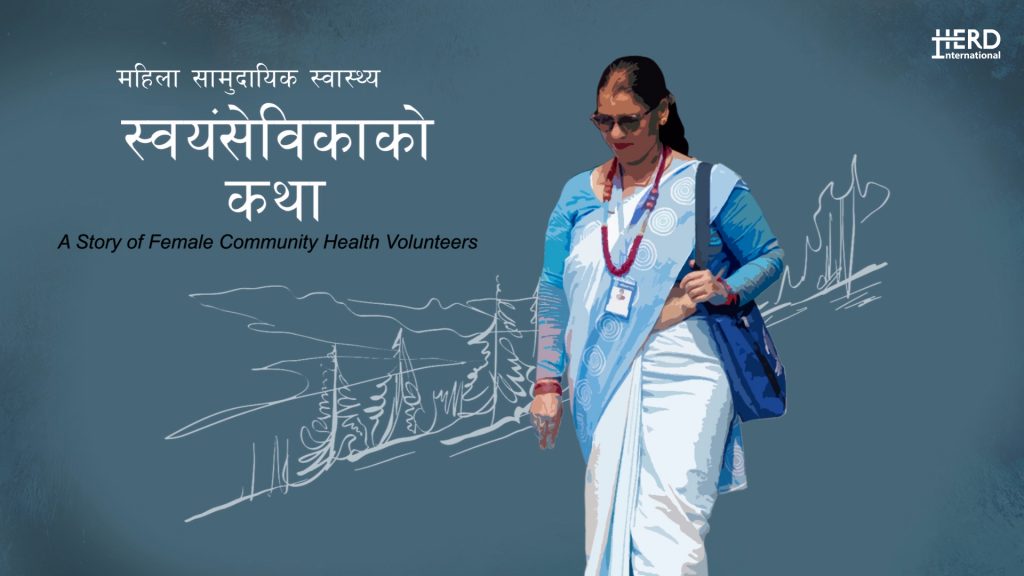Introduction
ReBUILD for Resilience is an international research consortium funded by the UK government, dedicated to strengthening resilience and building stronger systems for health across multiple levels and sectors in fragile and shock-prone settings, namely Lebanon, Myanmar, Nepal and Sierra Leone. These settings face significant challenges due to fragility, violence, conflict and other shocks, eroding efforts to build healthy, equitable and prosperous societies. Innovative, timely and contextually tailored evidence generated in partnership with key local and national stakeholders is critical to developing and sustaining resilient health systems, which are currently lacking in these regions. Through this consortium, we aim to generate high quality, practical, multidisciplinary, operationally-relevant and scalable health system research in these settings.
As part of ReBUILD for Resilience, HERD International is implementing several research projects aimed at strengthening health systems at both national and subnational levels in Nepal. These projects are guided by the consortium’s resilience framework and Theory of Change and drawing on the foundation of these framework and ToC, HERD team developed a ToC specific for Nepal, which guides the system strengthening efforts through our learning site projects. Hence our learning site projects are designed to operationalize the ToC, ensuring that our initiatives are strategically aligned with our overall objectives and context-specific needs. We ensure a sustained focus on equity, gender, disability and social inclusion throughout the programme stages, aligning with the consortium’s Gender, Equity and Justice strategy 2020.
Learning site 1
The three-year participatory action research (2021-2024) entitled “Understanding and strengthening local health governance and planning to build resilient local health systems that leave no one behind: a learning site approach in Kapilvastu Municipality of Lumbini Province” is a three year research project. The project aims to understand and support the resilience of local health system focusing in Kapilvastu municipality of Kapilvastu district, which lies in Lumbini Province. We support in strengthening capacity of local government in health sector governance, planning and financing, that will enable to deliver quality and gender equitable health services.
We assess how interventions are implemented, and how decision space, demand for services, capacity and performance can be strengthened at this level. Such approach was facilitated by trusting relationships between research team and local system stakeholders and enable platform for research team to implement activities flexibly and collaboratively with local health system team focusing on local priorities.
Implementation approaches
We adopted participatory approaches, embracing co-creation at the heart of our project activities, including generation of evidence, prioritization of problems, development of action plan, implementation and monitoring of activities as well as in learning and adaptation of interventions for continuous improvements.
Our key intervention approaches are:
- Sensitization of local stakeholders including elected officials on health and health system resilience, as reflected in local plans and budget.
- Development of evidence-based and responsive action plan adopting cocreation approaches, conducting Group Model Building Workshops with elected officials, section officers, health workers and partner organization.
- Development of evidence-based, responsive and participatory annual work plan and budget.
- Enhancement of the data quality, evidence synthesis and use to inform policies, plans and practices for improved health system learning and decision making.
- Formation and operationalization of various structures and committees for improved governance and effective planning such as Municipal Health Committee at municipality, Health Facility Operation and Management Committees at Basic Health Service Centres and Rapid Response Team (RRT) at municipality and health facilities.
- Improvement of health sector governance, willingness and readiness to respond to emergencies and maintain access to essential health services during crisis and in normal times.
- Strengthening monitoring and supervision mechanisms of the health system.
- Establishing intersectoral coordination for effective and sustainable health outcomes.
For more information on R4R, please visit the main website from here: https://rebuildconsortium.com/rebuild-for-resilience/
Please visit our learning site here: https://kapilvastumun.gov.np/
Associated Team Members
Shophika Regmi
Senior Manager: Health System Research, Evaluation and LearningShophika Regmi
Senior Manager: Health System Research, Evaluation and LearningAppointed as the lead for Systems, Policy and Programme Department Ms. Shophika Regmi has been working in health and social research for more than a decade. Throughout this period, she has led research projects of various natures and scales, particularly in the health sector. She possesses extensive experiences in implementation research using participatory action approaches, designing and executing evaluation studies, national level surveillance study, and large-scale survey across diverse areas such as health system strengthening, urban health, health workforce, non-communicable [...]
Learn moreSushil Chandra Baral
Managing DirectorDr. Sushil Chandra Baral is an experienced health and development expert with over 25 years of experience in research and development. Specializing in health systems, health policy, and planning at both national and international levels, Dr. Baral has played a pivotal role in communicable disease control, specifically Tuberculosis. He serves as a Managing Director at HERD International. In the past, he worked as a Strategic Advisor for the Nepal Health Sector Support Programme demonstrating expertise in program-based operational research and [...]
Learn moreAnil Dhungana
Research CoordinatorMr. Anil Dhungana is a Public Health professional with over 9 years of extensive experience in strengthening local government health systems. His expertise spans health governance, policy and program planning, and promoting evidence-based decision-making. With a focus on nutrition, health, and Water Sanitation and Hygiene (WASH), he has collaborated with both national and international non-governmental organizations, as well as the government, in program management, planning, and implementation. Currently serving as a Research Coordinator at HERD International in Kapilvastu, Mr. Dhungana [...]
Learn moreAney Rijal
Qualitative Research OfficerMs. Aney Rijal is a dedicated public health professional, holding master’s in public health with a specialization in Implementation Research. She has experience in mixed method approaches in the field of tropical disease and health insurance researches. Ms. Rijal extends her expertise in research design, stakeholder analysis, data analysis and evidence synthesis along with communication, coordination with the multidisciplinary stakeholders. She is keen in conducting health systems research in infectious disease, tropical medicine, biosecurity, climate change and mental health. She [...]
Learn moreAbriti Arjyal
Research Manager - Qualitative and Multidisciplinary ScienceAbriti Arjyal
Research Manager - Qualitative and Multidisciplinary ScienceAbriti Arjyal has more than a decade of experience in the health system and social research, with specific expertise in implementation science and applied research. As a Research Manager in Qualitative and Multidisciplinary Science, she has led and contributed to several research projects as a co-investigator, thematic lead, or a member of the research team. and has established a network with national and international research experts. She has wide-ranging experience in the application of numerous research methods, including qualitative tools [...]
Learn moreGhanshyam Gautam
Lead - Health Economics, Systems and Social ProtectionGhanshyam Gautam
Lead - Health Economics, Systems and Social ProtectionAppointed as the lead of Strategy, Partnership and Business Department Dr. Ghanshyam Gautam is a Health Economist possessing more than 20 years of experience in health policy and systems reform, social protection, evidence-based planning and capacity development. His key areas of expertise include policy and strategic reform, health systems strengthening, health financing and universal health coverage, social protection, system and policy research. He currently holds the position of Lead- Health Economics, Systems and Social Protection at HERD International and has [...]
Learn moreProject Location
Similar Projects
Introduction ReBUILD for Resilience is an international research consortium funded by the UK government, dedicated to strengthening ...
Innovation Fund is the scheme provisioned by CHORUS Research Project Consortium. The fund is targeted to early and mid-career ...
Background: While the problem of NCDs, particularly the diabetes is increasing rapidly, very little capacity or almost no services are ...
Background Type 2 Diabetes mellitus (T2DM) is often not well understood among marginalized populations, but its prevalence is ...
Introduction ReBUILD for Resilience (R4R), is an international research consortium funded by the UK government dedicated to ...
Introduction The Participatory Engagement of City Communities Against Non-communicable Disease Risk in Bangladesh and Nepal (PECAN) ...
Background The growing numbers of urban poor around the world face several health challenges including the double burden of diseases, ...
Background The growing numbers of urban poor around the world face several health challenges including the double burden of ...
FAB-HPSRIs is an international collaboration of Health Policy and Systems Research Institutions (HPSRIs) with a mission to foster a ...









